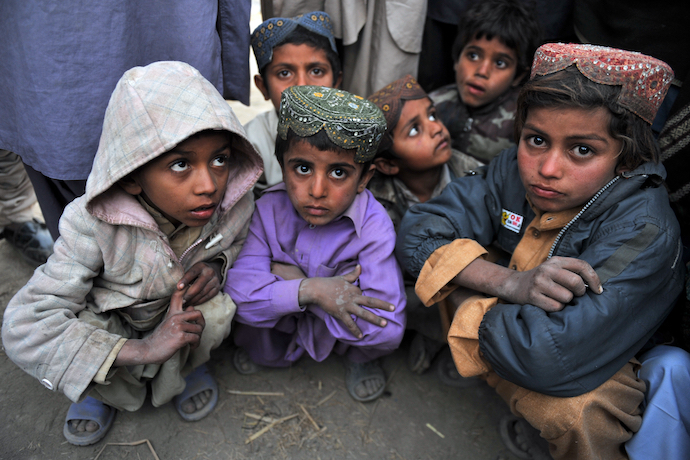The Platform
Latest Articles
by Muhammad Zain Ul Abdin
by Ismaila Biliaminu Manne
by Ismaila Biliaminu Manne
by Arth Agarwal
by Sohail Mahmood
by Sehr Rushmeen
by Iqra Awan
by Areesha Anwer
by Abdul Mussawer Safi
by Punsara Amarasinghe
by Muhammad Zain Ul Abdin
by Ismaila Biliaminu Manne
by Ismaila Biliaminu Manne
by Arth Agarwal
by Sohail Mahmood
by Sehr Rushmeen
by Iqra Awan
by Areesha Anwer
by Abdul Mussawer Safi
by Punsara Amarasinghe
Now Would be the Perfect Opportunity to Jumpstart India-Pakistan Trade
08.31.2022
On August 29, Miftah Ismail, Pakistan’s finance minister, while addressing a press conference in Islamabad, said that Pakistan would consider importing foodstuffs from India since severe flooding will impact Pakistanis’ access to basic food items. It is estimated that the recent devastating floods will carry significant economic costs in the billions of dollars. Ismail, while commenting on the resumption of bilateral trade with India, said that “trade would be opened if need be.”
The destruction of onion and tomato crops in the Sindh, KPK, and Balochistan provinces has resulted in rising food prices. In order to prevent a shortage in the domestic market, the government has already begun importing onions and tomatoes from neighbouring Afghanistan.
Pakistan suspended trade relations with India in August 2019. However, a month later, Pakistan reversed itself concerning crucial medicines.
In 2021, Imran Khan’s government had given the go-ahead to import sugar and cotton from India, although this decision was reversed after fervent opposition from within his own government and from opposition political parties.
It would be pertinent to point out that India has sent wheat, in the form of humanitarian assistance, in partnership with the World Food Programme, to Afghanistan, via Pakistan territory.
Senior government officials including Shehbaz Sharif, the prime minister, and the foreign minister have themselves promoted improved economic ties with India. In a media interview in June, the prime minister said: “We are cognisant of the economic dividends that can be accrued from a healthy trade activity with India.”

Members of the business community including Mian Muhammad Mansha have lobbied for the resumption of bilateral trade ties with India, arguing that the disruption of trade ties with India has not benefitted Pakistan. Mansha pointed to numerous synergies between India and Pakistan in an interview in April saying that while Pakistan could export cement it could buy cotton from India. While pitching for improved trade ties, Mansha said: “I am a businessman. That’s why I say that if something is cheaper in India, why should I buy that from another country? The transportation cost is less (from India).”
Even though there may have been a dip in bilateral trade between both countries it would be pertinent to point out that trade between India and Pakistan has been carried out via third-party countries like the UAE and Singapore. Pakistan’s imports from Dubai, from 2021 to 2022, were estimated at well over $8 billion.
Pakistan will be able to source commodities like tomatoes and onions at much cheaper prices from India. There has been a growing chorus in recent months from sections of the political class, business interests as well as farmers in Panjab (India) for the resumption of trade, arguing that the region would benefit from such a move. Many analysts have argued that the best way for a resumption of trade would be in an incremental manner with a focus on essential commodities.
It is difficult to make any predictions in the context of India-Pakistan ties but a resumption of bilateral trade could pave the way for reducing tensions between both countries. While trade is low-hanging fruit, people-to-people linkages are another. Every crisis presents an opportunity and the severe flooding as well as the current economic situation in Pakistan provides an important window for the resumption of trade links between Pakistan and India.
Tridivesh Singh Maini is a New Delhi-based Policy Analyst associated with The Jindal School of International Affairs, OP Jindal Global University, Sonipat, India.
